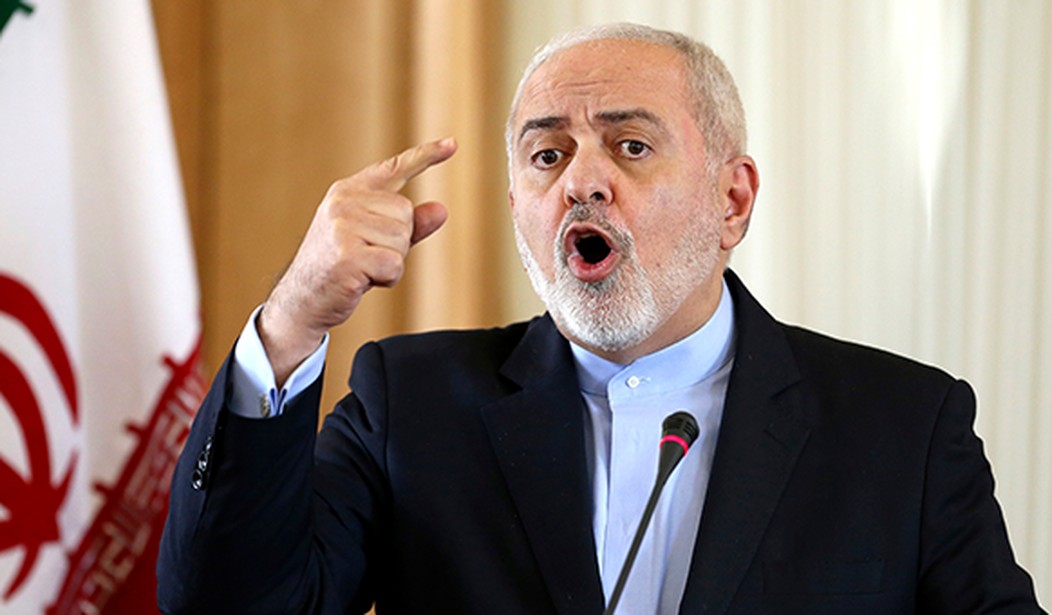Iran continues finding new ways to flex their supposed military strength announcing Monday they’ve exceeded the amount of nuclear fuel Obama’s 2015 Iran deal allowed them to possess. This follows a U.S. Senate vote Friday effectively allowing President Trump to continue the ability to retaliate against attacks from foreign nations without requiring Congressional approval.
However, for all the saber-rattling out of Iran, there’s a reason the Middle Eastern nation has been so openly contemptuous of the Trump administration and its decision to pull out of the Iran deal: that move, along with new sanctions, have led other Western trade partners to rethink their relationships with Iran.
According to the Jerusalem Post, trade between Germany and Iran has fallen to 50% of what it was this time in 2018:
Trade between Germany and Iran has collapsed under the impact of United States sanctions, data published by Funke newspapers showed, supporting Iran's assertion that Europe is failing to help preserve the nuclear non-proliferation deal it signed.
Data from the German Chamber of Commerce showed that trade volumes between Iran and Europe's largest economy were down 49% over the first four months of the year compared to the same period in 2018, with volumes continually declining.
The fall - to a total volume of 529 million euros - shows the impact of sanctions, imposed by the U.S. administration of President Donald Trump, that punish companies doing business with Iran by depriving them of access to the U.S. market.
JP points out that European leaders would like to preserve Obama’s Iran deal — which ultimately cut sanctions on Iran in exchange for their agreement to curb their quest to build a nuclear weapon — but that nations like Germany were being forced to work inside Iran using only local staff.
Tehran has insisted they’ve only pursued a nuclear program geared toward providing power to citizens, not toward creating weapons. That is until Monday, when they breached the Obama nuclear deal they’ve insisted they want to maintain seemingly to garner a response from Trump — a response that never came.
Recommended
The White House did release a statement, however, and reiterated the administration’s belief that any attempt by Iran to go over the stockpile limit would amount to a blackmail threat to Europe intended to force them to compromise:
The White House issued a statement saying that it had been a mistake to allow Iran to enrich uranium under the deal in the first place. “The United States and its allies will never allow Iran to develop nuclear weapons,” the statement said. “Maximum pressure on the Iranian regime will continue until its leaders alter their course of action. The regime must end its nuclear ambitions and its malign behavior.”
…
What the breach does do…is stick a finger in the eye of Europe, whose diplomats spent weeks scrambling to set up a mechanism to trade with Iran despite U.S. sanctions, to give Tehran some of the deal’s promised benefits. They finally got it up and running last week, only to have Zarif say it wasn’t enough.
Administration officials had previously said that Iranian threats to surpass the stockpile limit represented an attempt to “blackmail” the Europeans into concessions. But Iran is taking a gamble that it can step over certain lines and that European powers, desperate to preserve the deal, will keep backing down or offering concessions.
U.S. legislators such as Republican Senator Ted Cruz of Texas and U.S. allies such as Israel’s Benjamin Netanyahu have called for Europe to reimpose sanctions on Iran. However, European leaders that have agreed to the Iran Deal — which includes France, Germany, and the U.K., as well as non-European actors like Russia and China — have hesitated to move in that direction, pointing instead to the automatic non-compliance dispute resolution mechanism written in the Iran deal.
As Iran continues to demand attention from the U.S. — and continues stoking fears in the already anxious American press that more aggressive actions may be coming — the Trump administration has decided to play its next card very close to the vest.
When questioned over the weekend about what a U.S. response might look like if Iran continues its provocations, Trump — who has indicated in the past he believed Iran had already violated the Iran deal — cryptically told reporters, “You’ll see.”
Sarah Lee is a freelance writer and policy wonk living and working in Washington, DC.

























Join the conversation as a VIP Member